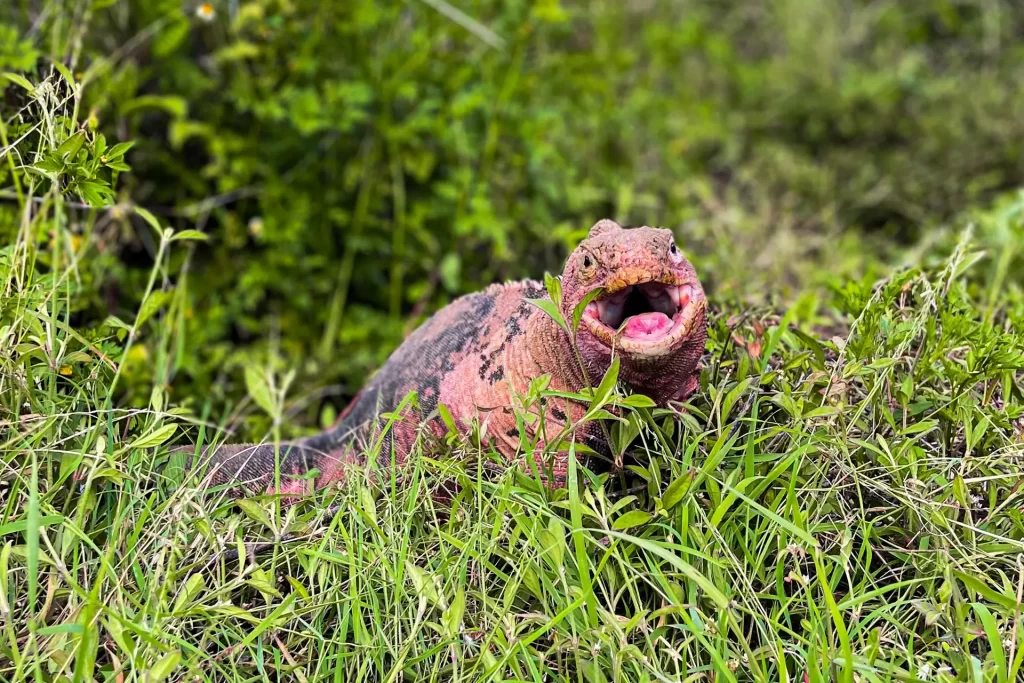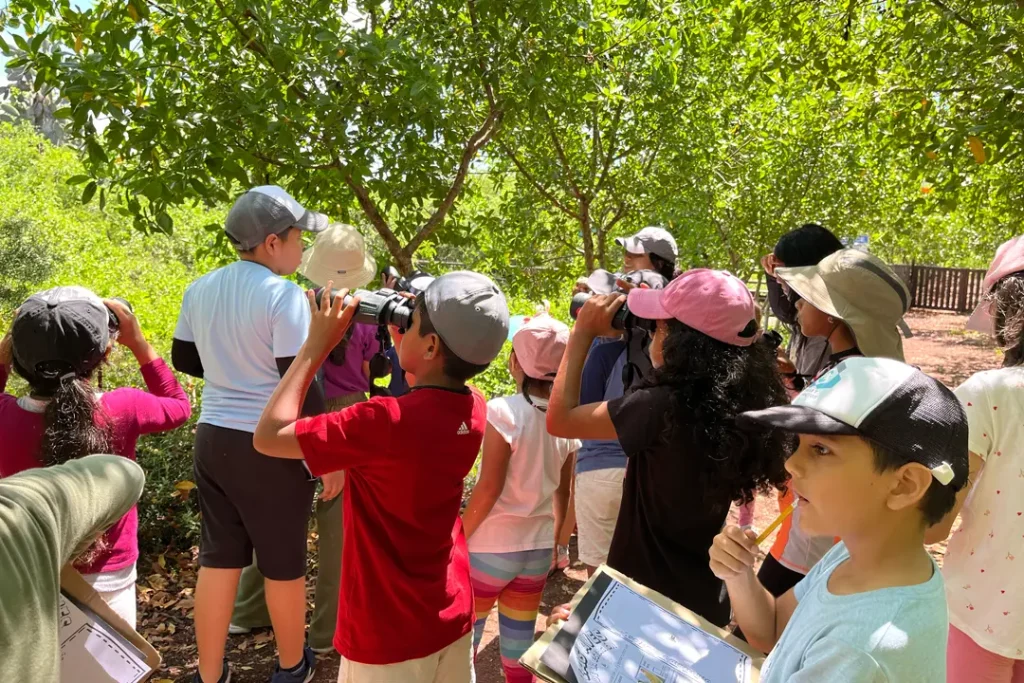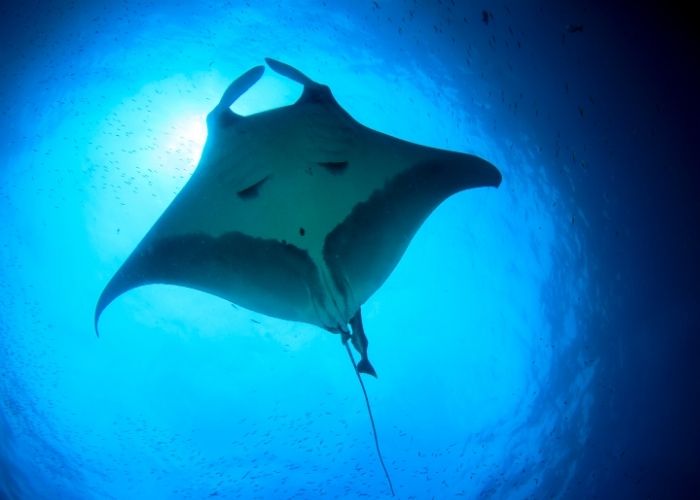The expedition team led by Dr. Jorge Carrion spent over 600 hours protecting this unique volcano’s ecosystems. It is the highest point of the archipelago, at 1,707 meters above sea level.
Research on Pink Iguanas, Giant Tortoises and Giant Tortoises
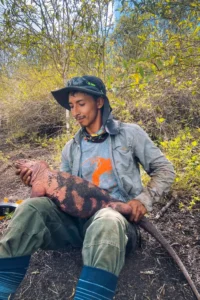
©Galápagos Conservancy
During the expedition, the pink iguana Conolophus Marthae that is critically endangered was monitored. The aim was to better understand the ecology, reproduction biology, and possible threats of this species. This expedition’s main focus was to find pink iguanas hatchlings. The team found 53 individuals. Five of the 53 individuals were new adults that had not been seen before, and one was a juvenile. The rest were previously found iguanas. The team also described the habitat of each species at each capture site.
The team, in addition to monitoring pink iguanas and giant tortoises that are endemic to this volcano, also conducted a survey of the Chelonoidis Becki species. The population of these tortoises has declined significantly since the 1800s, and they are now classified as Vulnerable. The population has recovered to approximately 10,000 to 12,000 individuals. The team hopes to better understand the tortoise’s habitat requirements and its role in engineering the volcanoes eco-systems by studying the tortoise’s distribution along the gradient of altitude of the volcano.
Technology for Conservation
The expedition team, as part of an overall strategy, installed a system of camera traps in the habitat of the pink iguanas. The team relocated many cameras and downloaded images to create a wealth of information for monitoring the activity of all wildlife, including those previously unmonitored.
Our team installed 25 temperature sensors at various strategic locations on the flank of the volcano to measure temperature variations. Rain gauges are also installed in different altitudes and inside the crater to measure precipitation. These measurements will help us better understand the climate niche that the pink iguana inhabits on the volcano where it lives.
Reflections on the Expedition
Dr. Carrion stressed that our recent expedition to Wolf Volcano was proof of our commitment to conservation. “We remain unwavering in protecting these exceptional ecosystems for future generation.”
Our Galapagos Initiative, implemented jointly with the Galapagos National Park Directorate (GNPD), works tirelessly to protect these remarkable species, and the ecosystems that they inhabit. Our team’s goal during this expedition was to gather as much scientific information as possible in order to guide conservation efforts at Wolf Volcano. Their dedication reaffirms our commitment to conservation, and our mission to safeguard and protect the entire Galapagos Ecosystem for future generations.
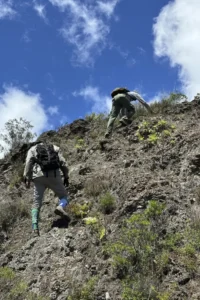
©Galápagos Conservancy
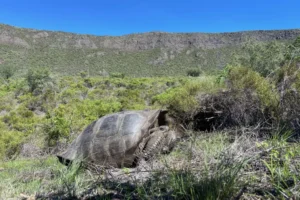
©Galápagos Conservancy
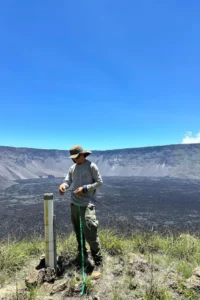
©Galápagos Conservancy
